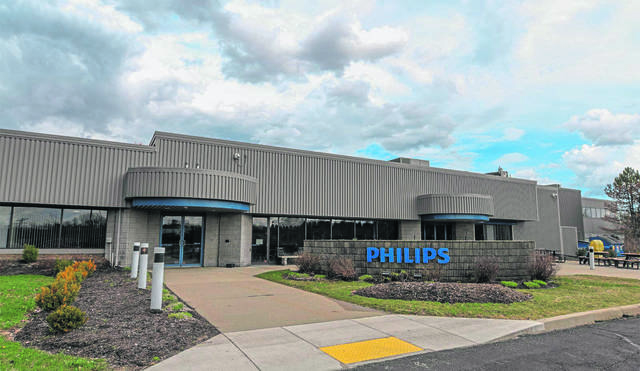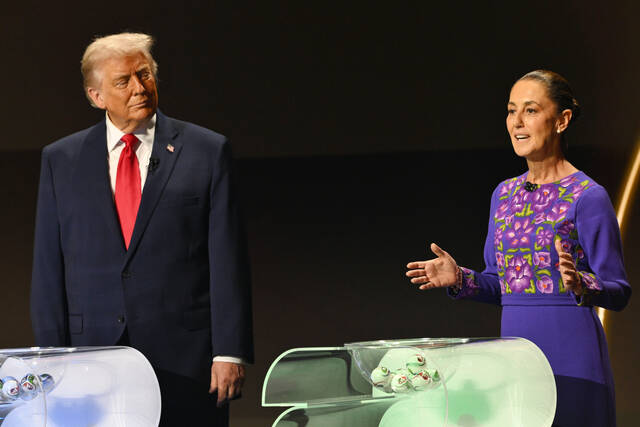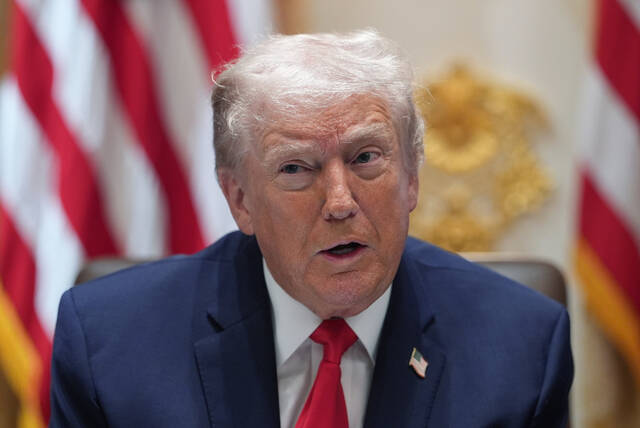A Dutch manufacturer says it hopes to triple the production of hospital ventilators being assembled in Murrysville and Carlsbad, Calif., between now and the end of September.
“In March, our production capacity was 1,000 ventilators per week. In two months, we hope to double that … and by the end of the third quarter, we should be at 3,000 per week,” Steve Klink, a spokesman for Philips Respironics, told the Tribune-Review from the company’s Amsterdam headquarters.
But the Trilogy Evo Universal ventilator — a low-cost “stockpile ventilator” Philips designed under contract with the U.S. government — isn’t among the devices going out the door. Instead, the company is busy making traditional hospital ventilators.
Demand for ventilators, sophisticated mechanical devices that force air into and carbon dioxide out of the lungs of people experiencing respiratory distress, has escalated dramatically with the spread of covid-19. In its most serious form, the viral illness can culminate in a severe pneumonia that requires the use of a breathing machine to survive.
Citing a critical need, governors across the country are in line with requests for ventilators from a nearly depleted national stockpile. They also have complained that the cost of hospital ventilators has soared as bidders worldwide compete to buy additional machines. New York Gov. Andrew Cuomo has complained that the competition has driven up per-unit cost by as much as tens of thousands of dollars.
Last week, The New York Times reported that a critical shortage of ventilators prompted one hospital in New York to begin hooking up two patients per breathing machine in a desperate move to save lives.
This is what we are down to. Splitting ventilators, and facing serious dilemmas like choosing who will be actually ventilated when everybody should. #TakeThisSeriously, bloody seriously.Never thought it was so bad. Thx to @PulmCrit for the inspiration and tips. pic.twitter.com/0aP7gaD9Er
— marco garrone (@drmarcogarrone) March 20, 2020
On March 20, President Trump invoked the Defense Production Act of 1950 in a bid to meet growing demand for lifesaving medical supplies, including ventilators. Using the law, Trump ordered General Motors to begin manufacturing ventilators — which GM says it is two weeks away from producing at the rate of 10,000 per month, The Associated Press reported.
The U.S. Food and Drug Administration approved the manufacturing and marketing of the low-cost, portable Trilogy ventilator last July — five years after Philips Respironics began working on the project.
The device costs a fraction of the ventilators being sent to hospitals in the U.S., Europe and “all over the world where there is a need,” Klink said.
“In 2014, we went into a development contract that meant we needed to develop a ventilator that was not there yet that would be stockpiled for disaster readiness. We successfully completed the contract, and the Trilogy Universal received FDA clearance in 2019,” he said.
After the company produced the first machine for validation and testing, the U.S. Department of Health and Human Services agreed to buy 10,000 stockpile units at $3,280 each, Klink said.
The first machines aren’t scheduled for delivery until August, per the contract.
Though they aren’t contractually due for another four months, Respironics is working with the U.S. government on the delivery date, given the current crisis, Klink said.
Meanwhile, Respironics is selling a different version of the Trilogy ventilator outside the U.S., ProPublica reported this week.
The same day the president triggered emergency war powers, the Tribune-Review reported that Respironics was hiring more than 50 assemblers on all shifts at its plants in Murrysville and Lower Burrell in a move to meet demand for medical equipment. Klink on Thursday could not say how many workers the company is adding in Westmoreland County.
The biggest challenge the company faces as it races to increase production is from suppliers, he said.
“It’s not a problem at the moment,” Klink said, “but there are over 650 components in a ventilator and those also come from all over the world.”








